afterLoad (456.22KB) (3.54ms)
afterInitialise (1.27MB) (22.31ms)
afterRoute (870.39KB) (14.66ms)
beforeRenderComponent com_tags (20.52KB) (391μs)
afterRenderComponent com_tags (1.58MB) (72.45ms)
afterDispatch (26.94KB) (3.72ms)
beforeRenderRawModule mod_articles_category (READ MORE...) (388.12KB) (9.05ms)
Before Access::preloadComponents (all components) (56.7KB) (1.05ms)
After Access::preloadComponents (all components) (103.05KB) (2.69ms)
Before Access::getAssetRules (id:8 name:com_content) (840B) (26μs)
After Access::getAssetRules (id:8 name:com_content) (7.05KB) (56μs)
afterRenderRawModule mod_articles_category (READ MORE...) (6.33KB) (88.16ms)
beforeRenderRawModule mod_tags_popular (Search) (4.81KB) (41μs)
afterRenderRawModule mod_tags_popular (Search) (1.87KB) (49.95ms)
beforeRenderRawModule mod_custom (Remember to download Heart Healthy Seniors) (816B) (50μs)
afterRenderRawModule mod_custom (Remember to download Heart Healthy Seniors) (4.86KB) (1.47ms)
beforeRenderRawModule mod_custom (Get additionel and more detailed knowledge ) (752B) (28μs)
afterRenderRawModule mod_custom (Get additionel and more detailed knowledge ) (1.67KB) (45μs)
beforeRenderRawModule mod_custom (BOOST YOUR IMMUNE DEFENSE) (608B) (12μs)
afterRenderRawModule mod_custom (BOOST YOUR IMMUNE DEFENSE) (928B) (25μs)
beforeRenderRawModule mod_custom (Are you taking supplements) (736B) (10μs)
afterRenderRawModule mod_custom (Are you taking supplements) (1.03KB) (19μs)
beforeRenderRawModule mod_custom (Antiaging) (720B) (9μs)
afterRenderRawModule mod_custom (Antiaging) (1.02KB) (19μs)
beforeRenderRawModule mod_custom (Exercise) (720B) (9μs)
afterRenderRawModule mod_custom (Exercise) (1.02KB) (19μs)
beforeRenderRawModule mod_custom (Check this before you buy a Q10 product) (752B) (9μs)
afterRenderRawModule mod_custom (Check this before you buy a Q10 product) (944B) (19μs)
beforeRenderRawModule mod_custom (Chronic fatigue tied Alan to his bed but Q10 capsules saved him:) (245.53KB) (5.8ms)
afterRenderRawModule mod_custom (Chronic fatigue tied Alan to his bed but Q10 capsules saved him:) (960B) (64μs)
beforeRenderModule mod_custom (Chronic fatigue tied Alan to his bed but Q10 capsules saved him:) (768B) (6μs)
afterRenderModule mod_custom (Chronic fatigue tied Alan to his bed but Q10 capsules saved him:) (1.3KB) (82μs)
beforeRenderRawModule mod_custom (Cholesterol-lowering without side effects:) (368B) (14μs)
afterRenderRawModule mod_custom (Cholesterol-lowering without side effects:) (2.19KB) (25μs)
beforeRenderModule mod_custom (Cholesterol-lowering without side effects:) (752B) (2μs)
afterRenderModule mod_custom (Cholesterol-lowering without side effects:) (1.28KB) (30μs)
beforeRenderModule mod_articles_category (READ MORE...) (21.32KB) (409μs)
afterRenderModule mod_articles_category (READ MORE...) (1.25KB) (42μs)
beforeRenderModule mod_tags_popular (Search) (5.17KB) (13μs)
afterRenderModule mod_tags_popular (Search) (1.27KB) (25μs)
beforeRenderModule mod_custom (Remember to download Heart Healthy Seniors) (1.17KB) (11μs)
afterRenderModule mod_custom (Remember to download Heart Healthy Seniors) (1.3KB) (22μs)
beforeRenderModule mod_custom (Get additionel and more detailed knowledge ) (368B) (9μs)
afterRenderModule mod_custom (Get additionel and more detailed knowledge ) (1.3KB) (21μs)
beforeRenderModule mod_custom (BOOST YOUR IMMUNE DEFENSE) (224B) (9μs)
afterRenderModule mod_custom (BOOST YOUR IMMUNE DEFENSE) (1.28KB) (20μs)
beforeRenderModule mod_custom (Are you taking supplements) (352B) (936μs)
afterRenderModule mod_custom (Are you taking supplements) (1.28KB) (88μs)
beforeRenderModule mod_custom (Antiaging) (336B) (15μs)
afterRenderModule mod_custom (Antiaging) (1.27KB) (30μs)
beforeRenderModule mod_custom (Exercise) (336B) (11μs)
afterRenderModule mod_custom (Exercise) (1.25KB) (22μs)
beforeRenderModule mod_custom (Check this before you buy a Q10 product) (352B) (9μs)
afterRenderModule mod_custom (Check this before you buy a Q10 product) (1.28KB) (22μs)
beforeRenderRawModule mod_menu (Main menu-US) (20.94KB) (639μs)
afterRenderRawModule mod_menu (Main menu-US) (152.66KB) (3.88ms)
beforeRenderModule mod_menu (Main menu-US) (720B) (7μs)
afterRenderModule mod_menu (Main menu-US) (4.36KB) (75μs)
beforeRenderRawModule mod_languages (Sprogskift) (3.44KB) (24μs)
afterRenderRawModule mod_languages (Sprogskift) (26.8KB) (3.23ms)
beforeRenderModule mod_languages (Sprogskift) (720B) (8μs)
afterRenderModule mod_languages (Sprogskift) (5.31KB) (1.27ms)
beforeRenderRawModule mod_finder () (6.34KB) (25μs)
afterRenderRawModule mod_finder () (219.66KB) (7.45ms)
beforeRenderModule mod_finder () (704B) (7μs)
afterRenderModule mod_finder () (5.79KB) (44μs)
beforeRenderRawModule mod_custom () (6.62KB) (165μs)
afterRenderRawModule mod_custom () (22.66KB) (3ms)
beforeRenderModule mod_custom () (704B) (8μs)
afterRenderModule mod_custom () (1.23KB) (81μs)
beforeRenderRawModule mod_menu (Main menu-US) (5.07KB) (145μs)
afterRenderRawModule mod_menu (Main menu-US) (5.8KB) (727μs)
beforeRenderModule mod_menu (Main menu-US) (720B) (4μs)
afterRenderModule mod_menu (Main menu-US) (1.25KB) (47μs)
beforeRenderRawModule mod_languages (Sprogskift Mobil) (912B) (18μs)
afterRenderRawModule mod_languages (Sprogskift Mobil) (3.89KB) (1.67ms)
beforeRenderModule mod_languages (Sprogskift Mobil) (720B) (6μs)
afterRenderModule mod_languages (Sprogskift Mobil) (1.27KB) (39μs)
beforeRenderRawModule mod_finder () (2.3KB) (12μs)
afterRenderRawModule mod_finder () (6.29KB) (1.82ms)
beforeRenderModule mod_finder () (704B) (7μs)
afterRenderModule mod_finder () (1.23KB) (65μs)
beforeRenderRawModule mod_custom () (8.66KB) (204μs)
afterRenderRawModule mod_custom () (904B) (193μs)
beforeRenderModule mod_custom () (704B) (3μs)
afterRenderModule mod_custom () (2.43KB) (45μs)
beforeRenderRawModule mod_custom () (688B) (84μs)
afterRenderRawModule mod_custom () (896B) (99μs)
beforeRenderModule mod_custom () (704B) (3μs)
afterRenderModule mod_custom () (2.71KB) (20μs)
afterRender (288.21KB) (11.93ms)
| 1 x afterRenderRawModule mod_articles_category (READ MORE...) (6.33KB) (27.83%) | 88.16ms |
| 1 x afterRenderComponent com_tags (1.58MB) (22.87%) | 72.45ms |
| 1 x afterRenderRawModule mod_tags_popular (Search) (1.87KB) (15.77%) | 49.95ms |
| 1 x afterInitialise (1.27MB) (7.04%) | 22.31ms |
| 1 x afterRoute (870.39KB) (4.63%) | 14.66ms |
| 1 x afterRender (288.21KB) (3.76%) | 11.93ms |
| 1 x beforeRenderRawModule mod_articles_category (READ MORE...) (388.12KB) (2.86%) | 9.05ms |
| 1 x afterRenderRawModule mod_finder () (219.66KB) (2.35%) | 7.45ms |
| 1 x beforeRenderRawModule mod_custom (Chronic fatigue tied Alan to his bed but Q10 capsules saved him:) (245.53KB) (1.83%) | 5.80ms |
| 1 x afterRenderRawModule mod_menu (Main menu-US) (152.66KB) (1.23%) | 3.88ms |
| 1 x afterDispatch (26.94KB) (1.17%) | 3.72ms |
| 1 x afterLoad (456.22KB) (1.12%) | 3.54ms |
| 1 x afterRenderRawModule mod_languages (Sprogskift) (26.8KB) (1.02%) | 3.23ms |
| 1 x afterRenderRawModule mod_custom () (22.66KB) (0.95%) | 3.00ms |
| 1 x After Access::preloadComponents (all components) (103.05KB) (0.85%) | 2.69ms |
| 1 x afterRenderRawModule mod_finder () (6.29KB) (0.57%) | 1.82ms |
| 1 x afterRenderRawModule mod_languages (Sprogskift Mobil) (3.89KB) (0.53%) | 1.67ms |
| 1 x afterRenderRawModule mod_custom (Remember to download Heart Healthy Seniors) (4.86KB) (0.46%) | 1.47ms |
| 1 x afterRenderModule mod_languages (Sprogskift) (5.31KB) (0.4%) | 1.27ms |
| 1 x Before Access::preloadComponents (all components) (56.7KB) (0.33%) | 1.05ms |
| 1 x beforeRenderModule mod_custom (Are you taking supplements) (352B) (0.3%) | 936μs |
| 1 x afterRenderRawModule mod_menu (Main menu-US) (5.8KB) (0.23%) | 727μs |
| 1 x beforeRenderRawModule mod_menu (Main menu-US) (20.94KB) (0.2%) | 639μs |
| 1 x beforeRenderModule mod_articles_category (READ MORE...) (21.32KB) (0.13%) | 409μs |
| 1 x beforeRenderComponent com_tags (20.52KB) (0.12%) | 391μs |
| 1 x beforeRenderRawModule mod_custom () (8.66KB) (0.06%) | 204μs |
| 1 x afterRenderRawModule mod_custom () (904B) (0.06%) | 193μs |
| 1 x beforeRenderRawModule mod_custom () (6.62KB) (0.05%) | 165μs |
| 1 x beforeRenderRawModule mod_menu (Main menu-US) (5.07KB) (0.05%) | 145μs |
| 1 x afterRenderRawModule mod_custom () (896B) (0.03%) | 99μs |
| 1 x afterRenderModule mod_custom (Are you taking supplements) (1.28KB) (0.03%) | 88μs |
| 1 x beforeRenderRawModule mod_custom () (688B) (0.03%) | 84μs |
| 1 x afterRenderModule mod_custom (Chronic fatigue tied Alan to his bed but Q10 capsules saved him:) (1.3KB) (0.03%) | 82μs |
| 1 x afterRenderModule mod_custom () (1.23KB) (0.03%) | 81μs |
| 1 x afterRenderModule mod_menu (Main menu-US) (4.36KB) (0.02%) | 75μs |
| 1 x afterRenderModule mod_finder () (1.23KB) (0.02%) | 65μs |
| 1 x afterRenderRawModule mod_custom (Chronic fatigue tied Alan to his bed but Q10 capsules saved him:) (960B) (0.02%) | 64μs |
| 1 x After Access::getAssetRules (id:8 name:com_content) (7.05KB) (0.02%) | 56μs |
| 1 x beforeRenderRawModule mod_custom (Remember to download Heart Healthy Seniors) (816B) (0.02%) | 50μs |
| 1 x afterRenderModule mod_menu (Main menu-US) (1.25KB) (0.01%) | 47μs |
| 1 x afterRenderRawModule mod_custom (Get additionel and more detailed knowledge ) (1.67KB) (0.01%) | 45μs |
| 1 x afterRenderModule mod_custom () (2.43KB) (0.01%) | 45μs |
| 1 x afterRenderModule mod_finder () (5.79KB) (0.01%) | 44μs |
| 1 x afterRenderModule mod_articles_category (READ MORE...) (1.25KB) (0.01%) | 42μs |
| 1 x beforeRenderRawModule mod_tags_popular (Search) (4.81KB) (0.01%) | 41μs |
| 1 x afterRenderModule mod_languages (Sprogskift Mobil) (1.27KB) (0.01%) | 39μs |
| 1 x afterRenderModule mod_custom (Cholesterol-lowering without side effects:) (1.28KB) (0.01%) | 30μs |
| 1 x afterRenderModule mod_custom (Antiaging) (1.27KB) (0.01%) | 30μs |
| 1 x beforeRenderRawModule mod_custom (Get additionel and more detailed knowledge ) (752B) (0.01%) | 28μs |
| 1 x Before Access::getAssetRules (id:8 name:com_content) (840B) (0.01%) | 26μs |
| 1 x afterRenderRawModule mod_custom (BOOST YOUR IMMUNE DEFENSE) (928B) (0.01%) | 25μs |
| 1 x afterRenderRawModule mod_custom (Cholesterol-lowering without side effects:) (2.19KB) (0.01%) | 25μs |
| 1 x afterRenderModule mod_tags_popular (Search) (1.27KB) (0.01%) | 25μs |
| 1 x beforeRenderRawModule mod_finder () (6.34KB) (0.01%) | 25μs |
| 1 x beforeRenderRawModule mod_languages (Sprogskift) (3.44KB) (0.01%) | 24μs |
| 1 x afterRenderModule mod_custom (Exercise) (1.25KB) (0.01%) | 22μs |
| 1 x afterRenderModule mod_custom (Check this before you buy a Q10 product) (1.28KB) (0.01%) | 22μs |
| 1 x afterRenderModule mod_custom (Remember to download Heart Healthy Seniors) (1.3KB) (0.01%) | 22μs |
| 1 x afterRenderModule mod_custom (Get additionel and more detailed knowledge ) (1.3KB) (0.01%) | 21μs |
| 1 x afterRenderModule mod_custom (BOOST YOUR IMMUNE DEFENSE) (1.28KB) (0.01%) | 20μs |
| 1 x afterRenderModule mod_custom () (2.71KB) (0.01%) | 20μs |
| 1 x afterRenderRawModule mod_custom (Antiaging) (1.02KB) (0.01%) | 19μs |
| 1 x afterRenderRawModule mod_custom (Check this before you buy a Q10 product) (944B) (0.01%) | 19μs |
| 1 x afterRenderRawModule mod_custom (Are you taking supplements) (1.03KB) (0.01%) | 19μs |
| 1 x afterRenderRawModule mod_custom (Exercise) (1.02KB) (0.01%) | 19μs |
| 1 x beforeRenderRawModule mod_languages (Sprogskift Mobil) (912B) (0.01%) | 18μs |
| 1 x beforeRenderModule mod_custom (Antiaging) (336B) (0%) | 15μs |
| 1 x beforeRenderRawModule mod_custom (Cholesterol-lowering without side effects:) (368B) (0%) | 14μs |
| 2 x beforeRenderModule mod_finder () (704B) (0%) | 14μs |
| 3 x beforeRenderModule mod_custom () (704B) (0%) | 14μs |
| 1 x beforeRenderModule mod_tags_popular (Search) (5.17KB) (0%) | 13μs |
| 1 x beforeRenderRawModule mod_finder () (2.3KB) (0%) | 12μs |
| 1 x beforeRenderRawModule mod_custom (BOOST YOUR IMMUNE DEFENSE) (608B) (0%) | 12μs |
| 1 x beforeRenderModule mod_custom (Remember to download Heart Healthy Seniors) (1.17KB) (0%) | 11μs |
| 1 x beforeRenderModule mod_custom (Exercise) (336B) (0%) | 11μs |
| 2 x beforeRenderModule mod_menu (Main menu-US) (720B) (0%) | 11μs |
| 1 x beforeRenderRawModule mod_custom (Are you taking supplements) (736B) (0%) | 10μs |
| 1 x beforeRenderRawModule mod_custom (Antiaging) (720B) (0%) | 9μs |
| 1 x beforeRenderRawModule mod_custom (Exercise) (720B) (0%) | 9μs |
| 1 x beforeRenderRawModule mod_custom (Check this before you buy a Q10 product) (752B) (0%) | 9μs |
| 1 x beforeRenderModule mod_custom (Get additionel and more detailed knowledge ) (368B) (0%) | 9μs |
| 1 x beforeRenderModule mod_custom (BOOST YOUR IMMUNE DEFENSE) (224B) (0%) | 9μs |
| 1 x beforeRenderModule mod_custom (Check this before you buy a Q10 product) (352B) (0%) | 9μs |
| 1 x beforeRenderModule mod_languages (Sprogskift) (720B) (0%) | 8μs |
| 1 x beforeRenderModule mod_custom (Chronic fatigue tied Alan to his bed but Q10 capsules saved him:) (768B) (0%) | 6μs |
| 1 x beforeRenderModule mod_languages (Sprogskift Mobil) (720B) (0%) | 6μs |
| 1 x beforeRenderModule mod_custom (Cholesterol-lowering without side effects:) (752B) (0%) | 2μs |
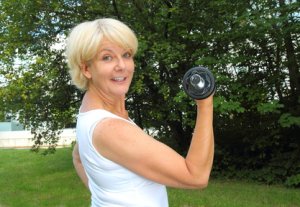 Undernourishment and lack of protein is common among older people. Evidence even suggests that the recommended daily intake of protein is too low, at least as far as seniors is concerned. The problem is most likely a slowdown of the muscle-building enzyme processes. The quality of protein also has something to say just like the amount of physical activity is a factor.
Undernourishment and lack of protein is common among older people. Evidence even suggests that the recommended daily intake of protein is too low, at least as far as seniors is concerned. The problem is most likely a slowdown of the muscle-building enzyme processes. The quality of protein also has something to say just like the amount of physical activity is a factor.







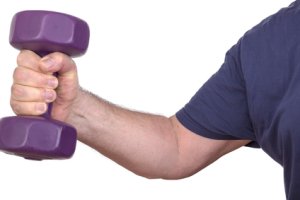 Ageing processes are associated with loss of muscle mass and impaired physical performance, both of which tend to lower quality of life. It is commonly known that coenzyme Q10 plays a significant role in cellular energy turnover and protects against oxidative stress. Now, two independent cohort studies even show a relation between the body’s Q10 status and muscle strength. Earlier research even suggests that Q10 supplements may help older people develop more youthful muscle fibers. Individuals who take cholesterol-lowering statins are advised to take Q10 supplements.
Ageing processes are associated with loss of muscle mass and impaired physical performance, both of which tend to lower quality of life. It is commonly known that coenzyme Q10 plays a significant role in cellular energy turnover and protects against oxidative stress. Now, two independent cohort studies even show a relation between the body’s Q10 status and muscle strength. Earlier research even suggests that Q10 supplements may help older people develop more youthful muscle fibers. Individuals who take cholesterol-lowering statins are advised to take Q10 supplements.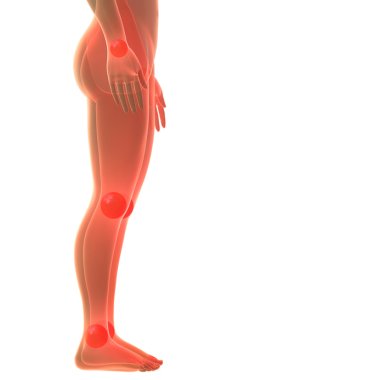
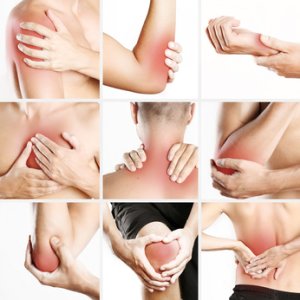 Supplementing with large doses of Q10 may help reduce pain and fatigue in people who suffer from fibromyalgia. An optimal treatment of the disease may even require focusing on underlying causes.
Supplementing with large doses of Q10 may help reduce pain and fatigue in people who suffer from fibromyalgia. An optimal treatment of the disease may even require focusing on underlying causes.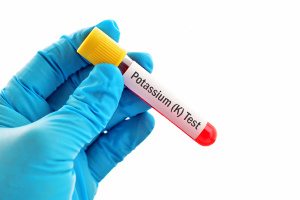 Loss of muscle mass may be a result of a number of factors such as lack of exercise, too little protein, and ageing. Insulin resistance and acid accumulation are also related to loss of muscle mass, and it looks as if increased intake of vegetables with potassium, a base-forming mineral, is linked to decreased loss of muscle mass in men – but not in women.
Loss of muscle mass may be a result of a number of factors such as lack of exercise, too little protein, and ageing. Insulin resistance and acid accumulation are also related to loss of muscle mass, and it looks as if increased intake of vegetables with potassium, a base-forming mineral, is linked to decreased loss of muscle mass in men – but not in women. Q10 is involved in the energy turnover in all cells. The highest concentration of the compound is found in the heart, as this muscle needs to pump day and night and to supply muscle cells with more blood when we are physically active. The cellular energy turnover takes place inside some minute powerhouses called mitochondria. A Danish-Swedish study has shown that the mitochondria in the muscle cells of top-notch athletes have a different construction that makes them able to produce up to 25 per cent more energy. Earlier studies show that Q10 is able to improve athletic performance, and it all boils down to optimizing the energy turnover in the cells.
Q10 is involved in the energy turnover in all cells. The highest concentration of the compound is found in the heart, as this muscle needs to pump day and night and to supply muscle cells with more blood when we are physically active. The cellular energy turnover takes place inside some minute powerhouses called mitochondria. A Danish-Swedish study has shown that the mitochondria in the muscle cells of top-notch athletes have a different construction that makes them able to produce up to 25 per cent more energy. Earlier studies show that Q10 is able to improve athletic performance, and it all boils down to optimizing the energy turnover in the cells.
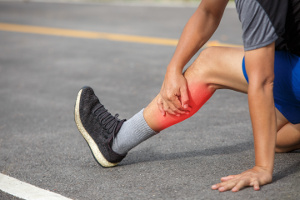


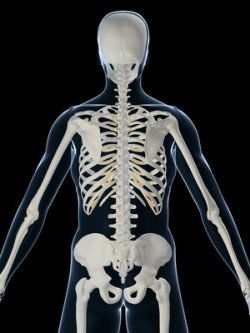 Fragile bones, also known as osteoporosis, is an insidious scourge. Science has its eyes on calcium and vitamin D, but osteoporosis may also be a result of getting too little vitamin K2 and magnesium, both of which are nutrients that must be properly balanced with calcium. If not, calcium may do more harm than good. Carbonated beverages, stimulants, and medicine (including statins) may also interfere with the bone-building processes. Therefore, strong bones require a lot more than calcium, and it is also important to remember daily, bone-challenging exercise.
Fragile bones, also known as osteoporosis, is an insidious scourge. Science has its eyes on calcium and vitamin D, but osteoporosis may also be a result of getting too little vitamin K2 and magnesium, both of which are nutrients that must be properly balanced with calcium. If not, calcium may do more harm than good. Carbonated beverages, stimulants, and medicine (including statins) may also interfere with the bone-building processes. Therefore, strong bones require a lot more than calcium, and it is also important to remember daily, bone-challenging exercise.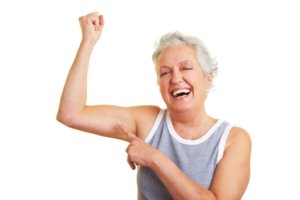
 Age-related loss of muscle mass is a natural process and may result in increased feebleness and even disability. Strength training and diet play a major role, and older people need more protein, especially an essential amino acid called leucine. In addition, supplements of vitamin D, omega-3 fatty acids, and probiotics can have a positive impact on muscle mass and muscle strength, according to a review article that is published in Frontiers in Nutrition.
Age-related loss of muscle mass is a natural process and may result in increased feebleness and even disability. Strength training and diet play a major role, and older people need more protein, especially an essential amino acid called leucine. In addition, supplements of vitamin D, omega-3 fatty acids, and probiotics can have a positive impact on muscle mass and muscle strength, according to a review article that is published in Frontiers in Nutrition.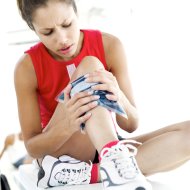 eople take supplements of coenzyme Q10 to increase their energy levels but according to a new study the substance is even able to counteract muscle damage caused by intense physical activity.
eople take supplements of coenzyme Q10 to increase their energy levels but according to a new study the substance is even able to counteract muscle damage caused by intense physical activity.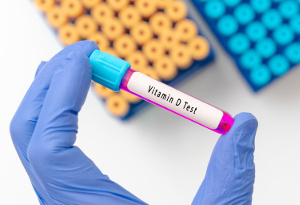 Lack of vitamin D can impair your muscle function because it causes muscle cells to produce less energy, according to a study that is published in Journal of Endocrinology. The scientists use their study to argue that one can improve muscle function and reduce age-related loss of muscle strength in seniors by making sure they get enough vitamin D. If your muscles feel weaker during the winter period, you may want to consider taking a supplement.
Lack of vitamin D can impair your muscle function because it causes muscle cells to produce less energy, according to a study that is published in Journal of Endocrinology. The scientists use their study to argue that one can improve muscle function and reduce age-related loss of muscle strength in seniors by making sure they get enough vitamin D. If your muscles feel weaker during the winter period, you may want to consider taking a supplement.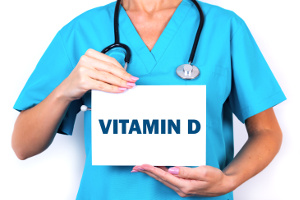 Hip fractures are particularly common among older people and are often associated with a number of serious complications. However, seniors that are not vitamin D-deficient may have better chances of walking again after their surgery, according to a new study that is published in the American Journal of Clinical Nutrition. Earlier Danish research even shows that having sufficient amounts of vitamin D in your blood lowers the risk of dying of serious complications after sustaining a fractured hip. Therefore, the scientists recommend that all older people take a high-dosed vitamin D supplement daily and that they have their vitamin D levels measured when they are admitted in the hospital.
Hip fractures are particularly common among older people and are often associated with a number of serious complications. However, seniors that are not vitamin D-deficient may have better chances of walking again after their surgery, according to a new study that is published in the American Journal of Clinical Nutrition. Earlier Danish research even shows that having sufficient amounts of vitamin D in your blood lowers the risk of dying of serious complications after sustaining a fractured hip. Therefore, the scientists recommend that all older people take a high-dosed vitamin D supplement daily and that they have their vitamin D levels measured when they are admitted in the hospital. "After about one week of taking the Q10 supplement I could feel a huge difference," says 23-year old Alan Piccini, who has been suffering from extreme fatigue and muscle aches ever since he was a child.
"After about one week of taking the Q10 supplement I could feel a huge difference," says 23-year old Alan Piccini, who has been suffering from extreme fatigue and muscle aches ever since he was a child. “Taking capsules with co-enzyme Q10 has freed me of the severe side effects of my cholesterol lowering medicine,” Mrs Franken explains.
“Taking capsules with co-enzyme Q10 has freed me of the severe side effects of my cholesterol lowering medicine,” Mrs Franken explains.